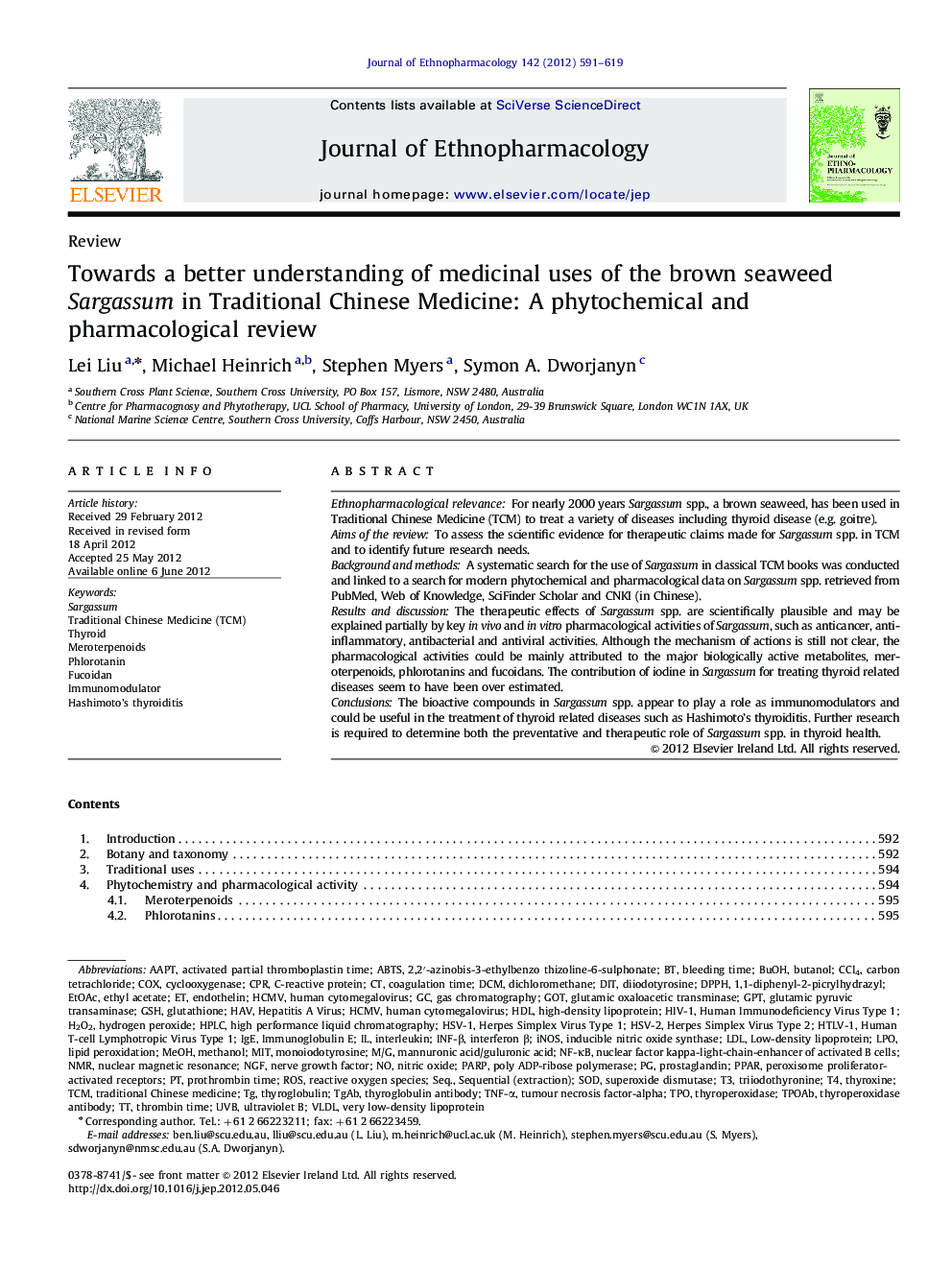| Article ID | Journal | Published Year | Pages | File Type |
|---|---|---|---|---|
| 5839000 | Journal of Ethnopharmacology | 2012 | 29 Pages |
Ethnopharmacological relevanceFor nearly 2000 years Sargassum spp., a brown seaweed, has been used in Traditional Chinese Medicine (TCM) to treat a variety of diseases including thyroid disease (e.g. goitre).Aims of the reviewTo assess the scientific evidence for therapeutic claims made for Sargassum spp. in TCM and to identify future research needs.Background and methodsA systematic search for the use of Sargassum in classical TCM books was conducted and linked to a search for modern phytochemical and pharmacological data on Sargassum spp. retrieved from PubMed, Web of Knowledge, SciFinder Scholar and CNKI (in Chinese).Results and discussionThe therapeutic effects of Sargassum spp. are scientifically plausible and may be explained partially by key in vivo and in vitro pharmacological activities of Sargassum, such as anticancer, anti-inflammatory, antibacterial and antiviral activities. Although the mechanism of actions is still not clear, the pharmacological activities could be mainly attributed to the major biologically active metabolites, meroterpenoids, phlorotanins and fucoidans. The contribution of iodine in Sargassum for treating thyroid related diseases seem to have been over estimated.ConclusionsThe bioactive compounds in Sargassum spp. appear to play a role as immunomodulators and could be useful in the treatment of thyroid related diseases such as Hashimoto's thyroiditis. Further research is required to determine both the preventative and therapeutic role of Sargassum spp. in thyroid health.
Graphical abstractDownload high-res image (334KB)Download full-size image
